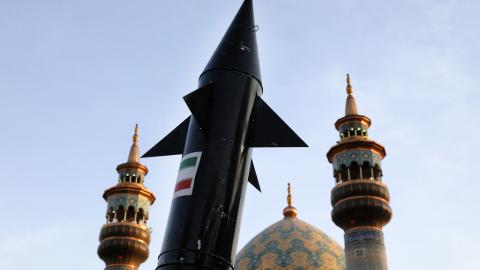Israel Election Result: No Clear Victor After Final Vote is Tallied
Share This article
JERUSALEM, Israel –The votes are in for Israel’s fourth election in two years and the results show it wasn’t enough to break through the nation’s political crisis.
Neither Prime Minister Benjamin Netanyahu and his allies, nor the parties opposing him secured enough seats to clinch a majority in parliament, raising the very real possibility of an unprecedented fifth election later this year.
In Israel, people do not vote for individuals, but for party lists to fill Israel’s 120-seat parliament. Sixty-one is the magic number of seats each party is aiming for to seize control of the government. But since no party has ever won a 61-seat majority on its own, parties must partner together to form government coalitions.
***Stay up to date with CBN News QuickStart. Go here to sign up for QuickStart and other CBN News emails and download the FREE CBN News app to ensure you keep receiving news from a Christian Perspective.***
With all the votes tallied, the pro-Netanyahu bloc won 52 seats and the anti-Netanyahu bloc won 57 seats. Since neither side secured a majority, party leaders must resort to courting fringe parties or those on the opposite side of the political spectrum, offering them positions, ministries, or other favors, to muster together a majority.
In this election, two wild card parties could change the outcome and break through the years-long political deadlock: the right-wing Yamina party led by Naftali Bennett and the Arab Islamist Ra’am party led by Mansour Abbas.
With seven seats, Yamina has enough to push the anti-Netanyahu bloc over the 61-seat threshold, but if he joins Netanyahu’s coalition, it would only put him at 59 seats – still short of the majority he needs to remain prime minister.
Ra’am secured four seats and could also give the anti-Netanyahu bloc a majority if he joined them. However, some right-wing leaders who oppose Netanyahu also oppose partnering with the Arab Islamic party. If Ra'am joined a government coalition it would be the first time an Arab party has ever served in an Israeli government.
For now, both Yamina and Ra’am are uncommitted to either side.
The political stalemate began in December 2018 and has left Israel with a poorly run government for years.
***As the number of voices facing big-tech censorship continues to grow, please sign up for CBN News daily newsletters and download the CBN News app to stay up-to-date with the latest news from a distinctly Christian perspective.***
Israel has not passed a national budget since March 2018. Israel’s government ministries are receiving funding based on 2018’s numbers, resulting in major cutbacks in social services amid the pandemic.
Now begins the lengthy negotiation process, which will likely take several weeks. If no one can assemble a 61-seat majority, the country will go to a fifth election.
Share This article





